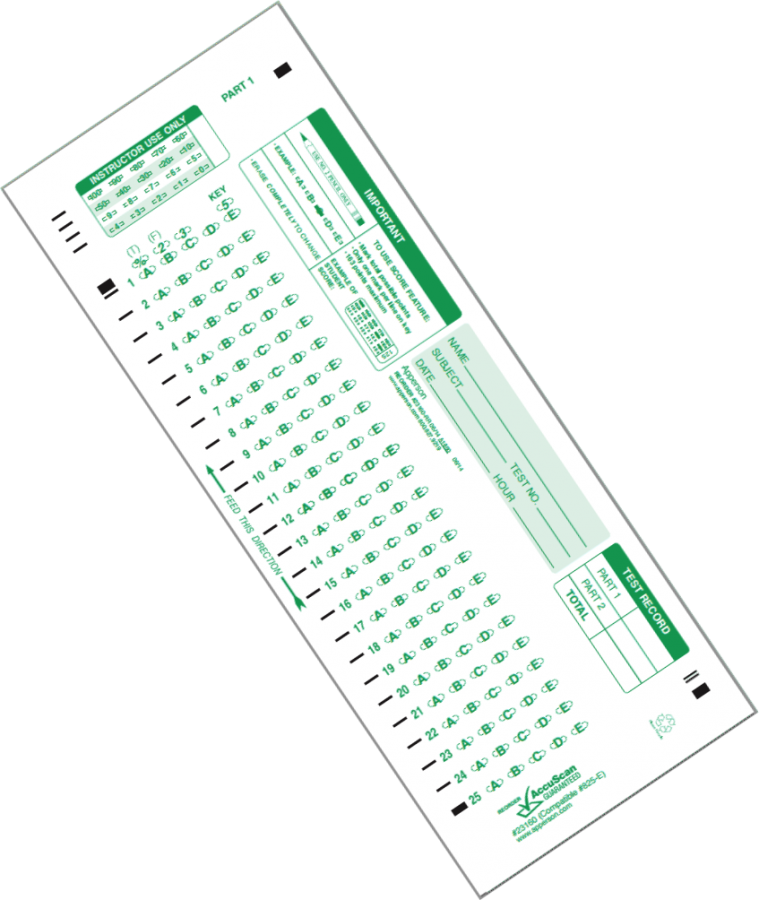SAT Saga: College Board’s SAT exam causes unrest
September 26, 2018
Anyone who registers for the SAT exam is informed that the test begins promptly at 8:00 a.m. By 8:20 a.m. of the August 2017 SAT exam, senior Rhea Karandikar began to lose patience. She was fighting her anxiety, her pencils lying untouched on her desk and her test sheets blank, as her proctor rambled through page after page of instructions. Before Karandikar had gotten the chance to start bubbling in her student information, two students rushed into the room, desperate to take the exam in time.
The students’ delay was a result of their poor planning on the exam date, according to Karandikar. She stresses the importance of planning ahead for the day of the exam, but she also values long-term preparation in order to score well on the SAT. Karandikar began studying for the SAT several months in advance, attending a preparation boot camp at Elite. Although she is grateful for the preparation, she is unsure whether her decision was entirely beneficial.
“It did raise my score quite a bit,” Karandikar said. “But honestly, if you have the type of discipline to do a practice test every day, it’ll probably raise your score just as much as any boot camp.”
Senior Pallavi Komma has had a similar experience preparing for the SAT exam. She began to study 12 weeks in advance, spending four hours each week attending a preparation class by Elite and taking practice tests. The classes ended up raising her score by 300 points, but she realized she could create nearly the same experience at home.
English teacher Mark Carpenter and math teacher Martin Jennings instructed SAT preparation classes for the PTSA from the 2017-2018 school year. Carpenter finds that the way students prepare for the SAT and the format of the exam has detracted from what the assessment represents.
“I think the SAT is a terrible assessment of how much a student has learned over the course of high school,” Carpenter said. “One’s success on the SAT is dependent on things like their family’s income status, it’s dependent on the level of preparation before the test, it’s dependent on test-taking strategies and it’s dependent on process of elimination and other methods.”
According to Carpenter, preparation and privilege are the largest factors impacting one’s SAT score. Karandikar agrees that SAT scores are inaccurate measures of high school learning, and as a student, she finds little overlap between her classes and the SAT exam.
“The SAT is the best measure of how good you are at taking the SAT,” Karandikar said. “If you have absolutely no high school knowledge in your brain but you prepare for the SAT and you take it, you’re going to do well regardless of what you learn in high school. There were so many classes I took in high school that were genuinely interesting to me and that I actually enjoyed, but the SAT didn’t even come close to covering any part of it.”
For Jennings, the SAT is a measurement of accumulated learning. To him, cramming material is an ineffective strategy to prepare for the SAT.
“The intent of the test writers is such that they want to find out how much the student knows,” Jennings said. “The intent isn’t meant to be cramming for the tests. Some preparation as far as understanding how the test is structured and how you function in that setting; that kind of information is good to know ahead of time.”
I think the SAT is a terrible assessment of how much a student has learned over the course of high school. — English teacher Mark Carpenter
Despite disliking the SAT’s focus on test-taking strategies, Carpenter notes that College Board has attempted to improve the SAT exam in recent years, bringing it closer to practical situations.
“The College Board has moved to try to incorporate more authenticity into the test,” Carpenter said. “They’ve brought in the essay, they’ve brought in less focus on obscure vocabulary, they’ve gotten rid of the guessing penalty. So, they’ve taken steps to improve it … incremental steps.”
Despite working to improve the SAT exams, College Board recently experienced controversy over reusing problems from its October 2017 exam in Asia on the August 2018 exam in the US. According to Komma, many students have demanded scores to be invalidated, but College Board has posted an official statement explaining that they will not change or cancel student scores. To Komma, College Board should take action resolving the issue with students.
“It was so weird that College Board would reuse a test,” Komma said. “That’s on them for that. If [students] score well now, colleges will probably wonder, ‘did she cheat? We don’t know if this score is really true.’”
With a similar perspective, Jennings shares that while College Board has established a variety of testing services after each SAT exam, such as score reports and regrading services, it is failing to provide new test problems to build off of.
“Lord knows they get paid plenty,” Jennings said. “And they charge us fees for all kinds of stuff. They have [allowed] students to pay to find out information about questions and answers that the students missed on their SAT tests. But if they’re going to make money off of this, then they need to be willing to invest money to keep writing new tests without using old materials. I don’t know why they wouldn’t have figured that out.”
Karandikar agrees that College Board’s recycling of test problems is problematic for students who have taken the test. To her, the issue should not be taken lightly.
“If you’re a nationwide company in charge of all of our scores and standardized testing, you should have it together and not be using the same tests over and over,” Karandikar said. “There are so many nationwide students that trust College Board with all of their scores and their AP tests. Obviously, everyone messes up, but they should have enough integrity to run their company smoothly, especially since it’s responsible for so many high school students … Get it together, College Board.”

















